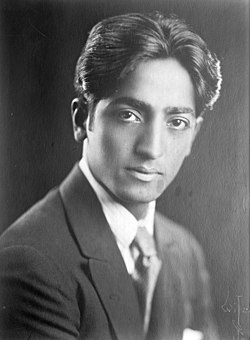Jiddu Krishnamurti Quote
I do not know if you have ever examined how you listen, it doesn't matter to what, whether to a bird, to the wind in the leaves, to the rushing waters, or how you listen to a dialogue with yourself, to your conversation in various relationships with your intimate friends, your wife or husband. If we try to listen we find it extraordinarily difficult, because we are always projecting our opinions and ideas, our prejudices, our background, our inclinations, our impulses; when they dominate we hardly listen to what is being said. In that state there is no value at all. One listens and therefore learns, only in a state of attention, a state of silence in which this whole background is in abeyance, is quiet; then, it seems to me, it is possible to communicate.
I do not know if you have ever examined how you listen, it doesn't matter to what, whether to a bird, to the wind in the leaves, to the rushing waters, or how you listen to a dialogue with yourself, to your conversation in various relationships with your intimate friends, your wife or husband. If we try to listen we find it extraordinarily difficult, because we are always projecting our opinions and ideas, our prejudices, our background, our inclinations, our impulses; when they dominate we hardly listen to what is being said. In that state there is no value at all. One listens and therefore learns, only in a state of attention, a state of silence in which this whole background is in abeyance, is quiet; then, it seems to me, it is possible to communicate.
Related Quotes
About Jiddu Krishnamurti
According to Krishnamurti an "immense energy and intelligence went through this body," a consciousness he called "the otherness" and which had always been there, but became more clear over time, as did his intellectual capability to express it in words. During his life he tried to share this experience in 'the teachings', but a few days before his death he stated that nobody had understood what his body went through, and after his death, this consciousness would be gone, and no other body would support it "for many hundred years."
Krishnamurti asserted that "truth is a pathless land" and advised against following any doctrine, discipline, teacher, guru, or authority, including himself. He dismissed the need for contrived meditation techniques, instead emphasizing the practice of choiceless awareness as the essence of "true meditation". He also emphasized psychological inquiry and liberation from cultural conditioning.
His supporters — working through non-profit foundations in India, Britain, and the United States — oversee several independent schools based on his views on education, and continue to distribute his thousands of talks, group and individual discussions, and writings in a variety of media formats and languages.
